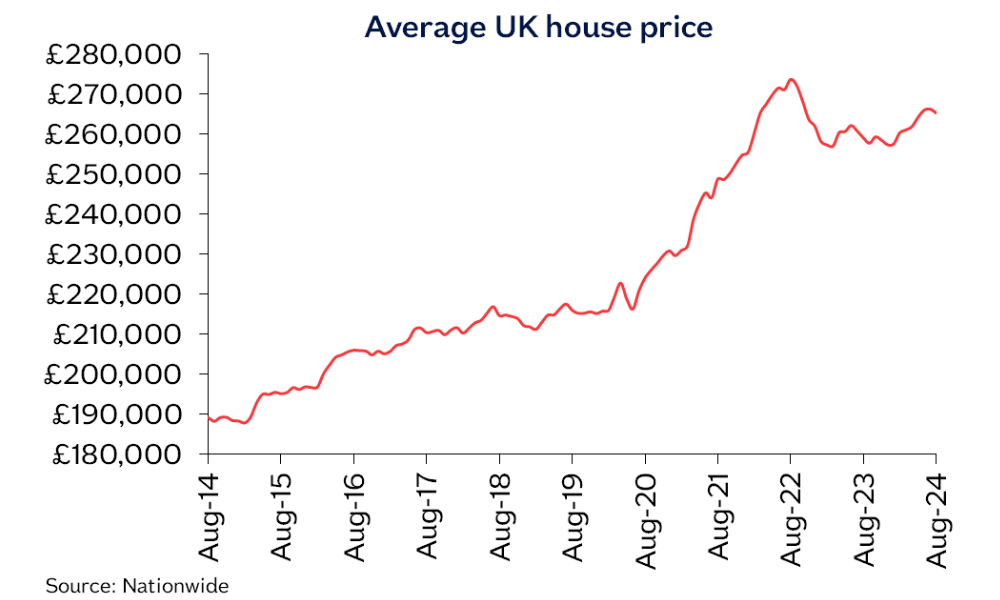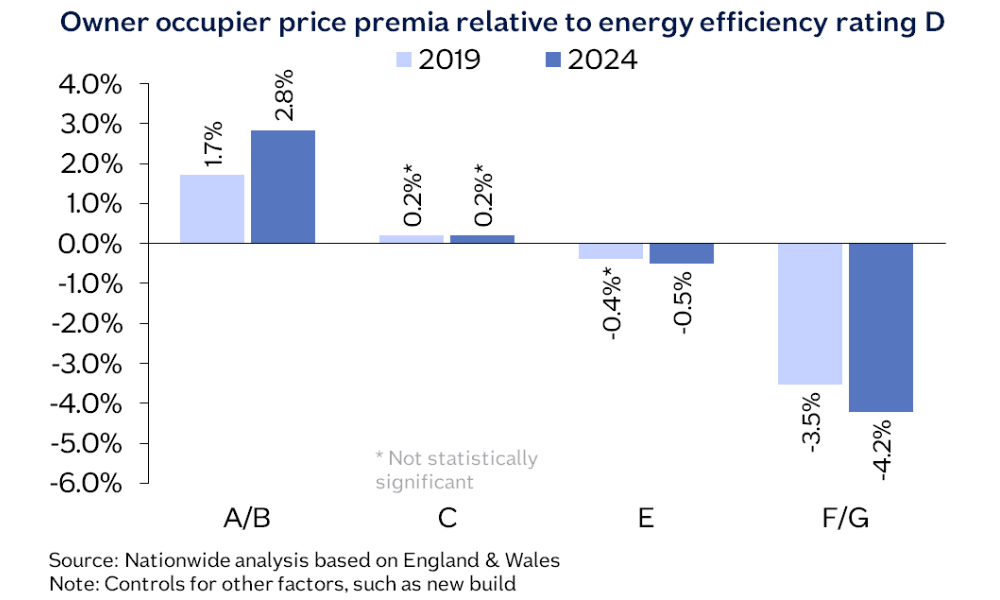Nationwide releases its house price index for August

UK house prices fell by 0.2% to £265,375 in August from £266,334 in the previous month, according to the latest Nationwide House Price Index.
Despite the monthly drop, the annual rate of house price growth rose to 2.4%, up from 2.1% in July. This marks the fastest annual growth since December 2022, although prices remain around 3% below the peak levels reached in the summer of 2022.
 “While house price growth and activity remain subdued by historic standards, they nevertheless present a picture of resilience in the context of the higher interest rate environment,” said Robert Gardner, chief economist at Nationwide Building Society.
“While house price growth and activity remain subdued by historic standards, they nevertheless present a picture of resilience in the context of the higher interest rate environment,” said Robert Gardner, chief economist at Nationwide Building Society.
Gardner added that as the economy continues to recover, housing market activity is likely to strengthen gradually. He cited expectations of modestly lower interest rates and earnings outpacing house price growth as factors that could ease affordability constraints.
“One small interest rate reduction and the market responded instantly, even though it was August,” commented Amy Reynolds, head of sales at Richmond estate agency Antony Roberts. “It’s been a very successful month, with a large number of sales agreed in all price ranges at a time when agents usually complain it is quiet.
“As the rate reduction was widely expected, we were ready – encouraging sellers to reduce their price, or launch their properties at the end of July and beginning of August, rather than wait until September as most would usually choose to do.”
Chris Baguley, group channel development director at property lender Together, expressed confidence that with the Bank of England recently announcing its first rate reduction since the start of the pandemic, we should continue to see positive activity in the mortgage market as more lenders take the opportunity to cut their rates in response.
“Given the appeal of these deals, this in turn could encourage action among both hopeful first-time buyers and those with property plans this year,” he said.
Karen Noye, mortgage expert at wealth management business Quilter, echoed the sentiment, noting that as conditions become more predictable, both buyers and sellers are gaining confidence that they can achieve their housing goals without the looming threat of mortgage shocks, which might mean there is a bounce in prices in the autumn.
“The structure of the mortgage market, with a large proportion of homeowners on fixed rate deals, has so far cushioned many from the full impact of rising interest rates,” she added. “However, as these deals begin to expire, the market could face renewed pressure, particularly if further rate cuts are slower or less substantial than anticipated, which could curtail house price growth later this year and next.”
The Nationwide report also highlighted a price premium for energy-efficient properties. Homes with an energy efficiency rating of A or B command a 2.8% premium over similar properties rated D, which is the most common rating. In contrast, homes with the lowest energy efficiency ratings, F or G, are valued 4.2% lower than D-rated properties.
 “The value that people attach to energy efficiency is likely to continue to evolve, especially if the government takes measures to incentivise greater energy efficiency,” Gardner noted.
“The value that people attach to energy efficiency is likely to continue to evolve, especially if the government takes measures to incentivise greater energy efficiency,” Gardner noted.
Energy efficiency in the UK’s housing stock has improved significantly over the past decade, with 48% of homes now rated ‘C’ or higher, compared to 18% in 2012. However, the pace of improvement has slowed in recent years.
Newly built properties typically have higher energy ratings, with 97% achieving a ‘C’ rating or above, although their contribution to the overall housing stock is limited due to slow growth.
Government analysis suggests that upgrading the housing stock to meet higher energy efficiency standards could cost between £91 billion and £94 billion. The current government goal is to raise as many homes as possible to a ‘C’ rating by 2035, but the slow pace of improvements suggests that additional incentives may be necessary, Gardner said.
Any thoughts on the latest Nationwide House Price Index? Share them with us by leaving a comment in the discussion box at the bottom of the page.



